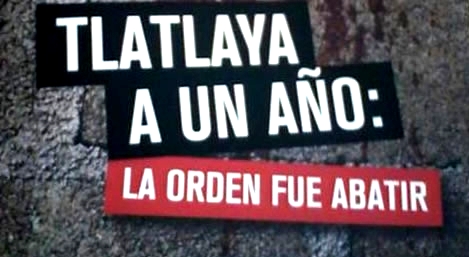






San José, July 6, 2015.- The Mexican government has not complied with its obligation to investigate the grave human rights violations committed in Tlatlaya, Mexico State on June 30, 2014.
That day, 22 people were killed in a military operation. The government’s official version stated that all of the deaths occurred as a result of a confrontation; however, news sources and the testimony of a survivor indicated that the vast majority of victims had been executed after the fighting had ended. Subsequently, a report from the National Human Rights Commission established that between 12 to 15 of the people who died were extrajudicially executed.
Despite the gravity of the situation, the Mexican government is failing to investigate the case with due diligence.
In recent days, the Miguel Agustín Pro Juárez Human Rights Center (Center Prodh), the organization representing one of the survivors, released a report highlighting the irregularities in the investigation of these facts. On the one hand, it is concerning that there has been an investigation started under military jurisdiction which parallels the investigation in the ordinary criminal courts, despite the military justice reform that excluded the use of military jurisdiction in cases where the victims are civilians. Additionally, we note that the Attorney General’s Office has only charged seven soldiers for the deaths of eight civilians, ignoring the evidence that indicates that there were more people executed.
More alarming is the existence of the military document entitled “General Order of Operations of the San Antonio del Rosario Operations Base,” which expressly mandates that “Troops should operate massively at night and reduce activities during the day, in order to kill criminals in the darkness of the night”. This provision clearly establishes an order to arbitrarily deprive people of life if the military considers them “criminals.” Although this same document in other paragraphs indicates that human rights must be respected, the strength of the cited paragraph creates at least confusion that favors arbitrariness and the abuse of power in contexts of combating organized crime, as in Mexico.
In the case of extrajudicial executions, the Inter-American Court of Human Rights has ruled that “it is essential that States conduct an effective investigation into the violation of the right to life recognized in Article 4 of the Convention and determine the responsibilities of all the perpetrators and participants, especially when State agents are involved.”
“It is urgent that the Mexican government reconsider the current course of its investigations in order to amend the proceedings to date and to conduct a serious investigation, aimed at identifying all of those responsible for these unfortunate events. This requires investigating the possible involvement of senior military officers who issued the order,” said Marcia Aguiluz, director of CEJIL’s Central America and Mexico Program.
CEJIL joins its voice to numerous local and international actors who urge Mexican authorities to fulfill their international obligations of guaranteeing access to justice, truth and reparation.
In particular we appeal for the rights of the surviving victims to be respected, that these victims are protected and are involved in all stages of the investigation. We also urge Mexico to protect the human rights defenders that accompany the case, listening to their recommendations in order to redirect the investigations in the shortest time possible.
¡Ayúdanos a continuar este trabajo crítico y urgente con una donación!
DONA AHORA